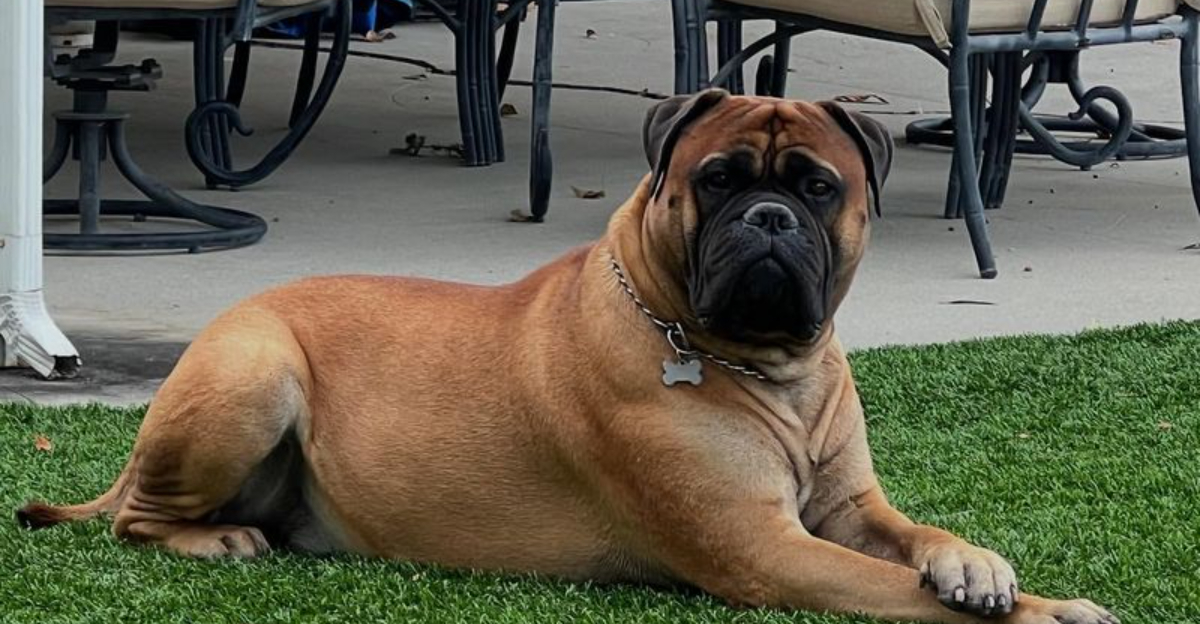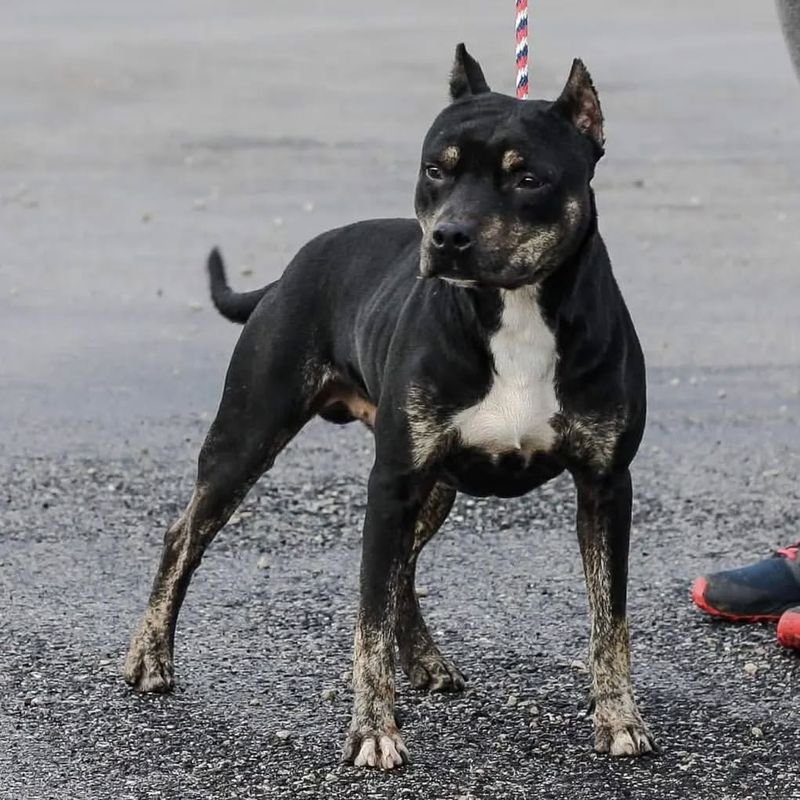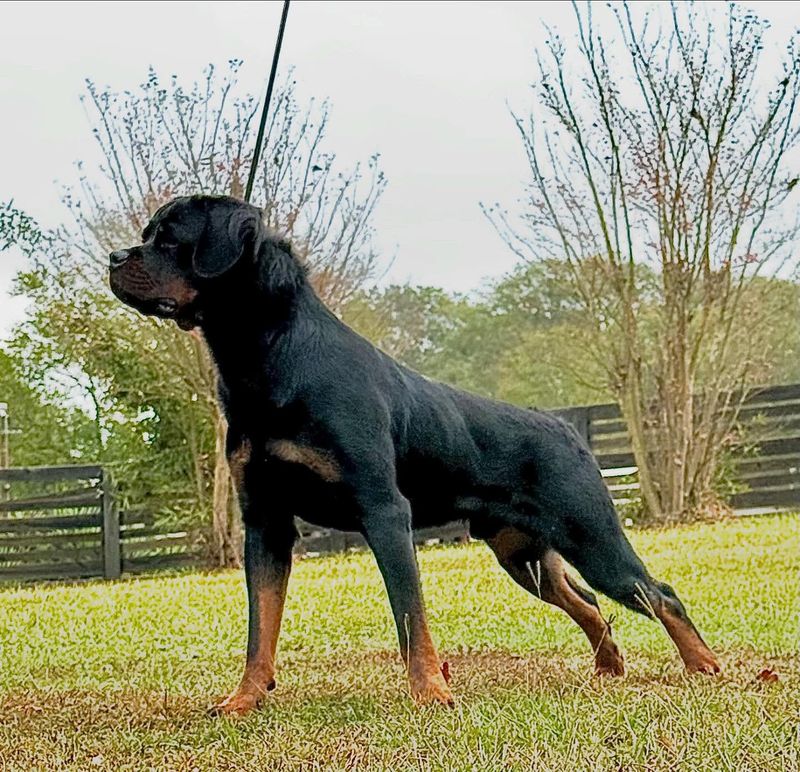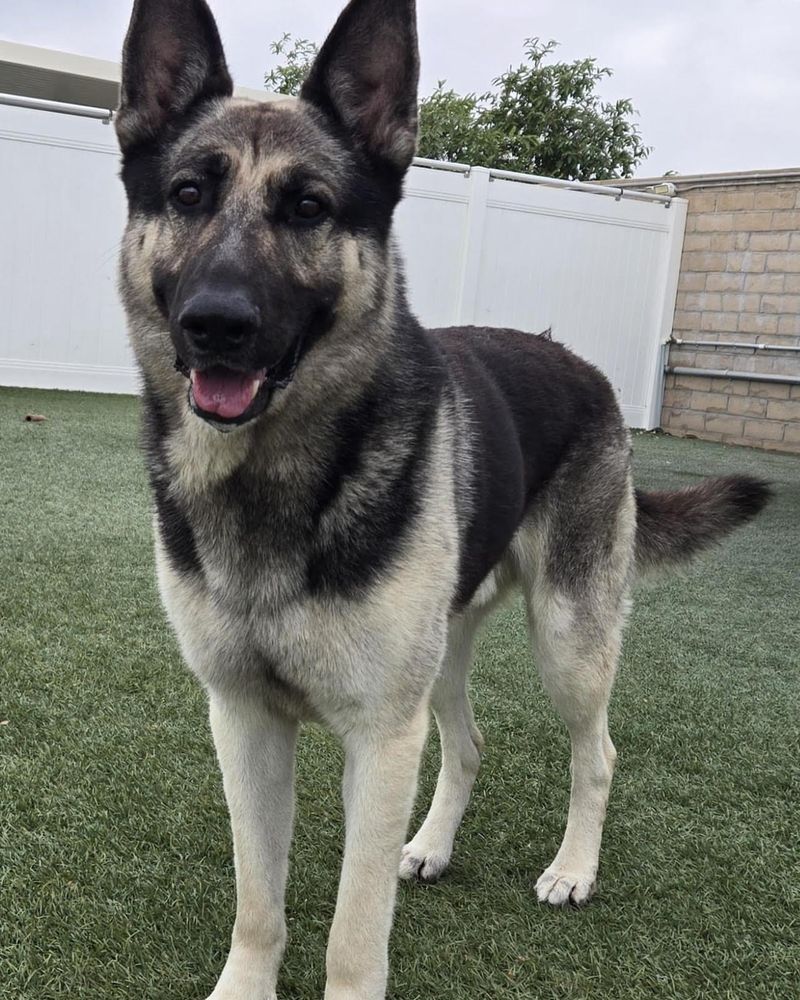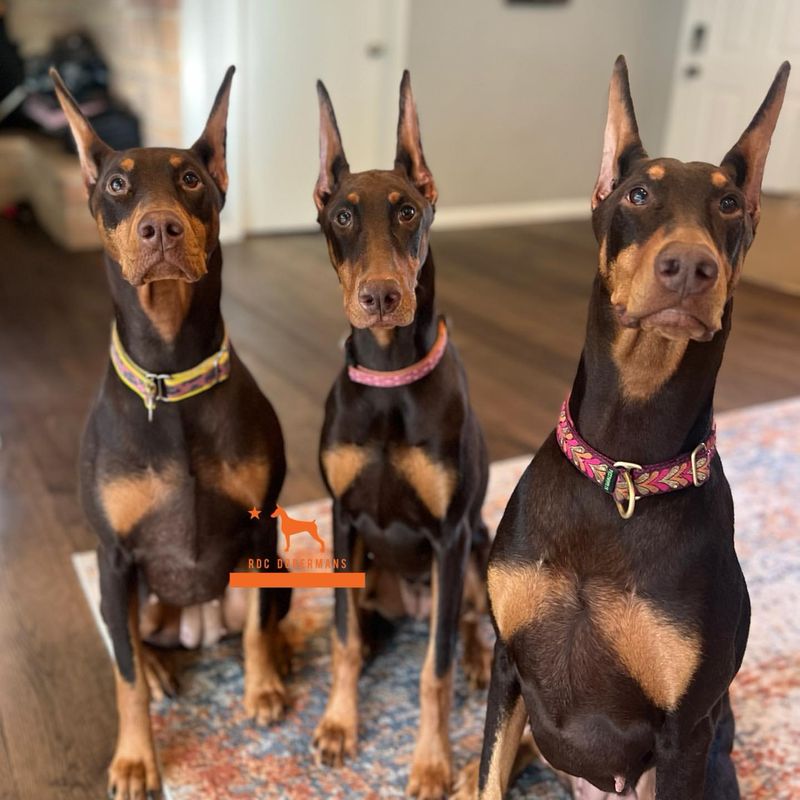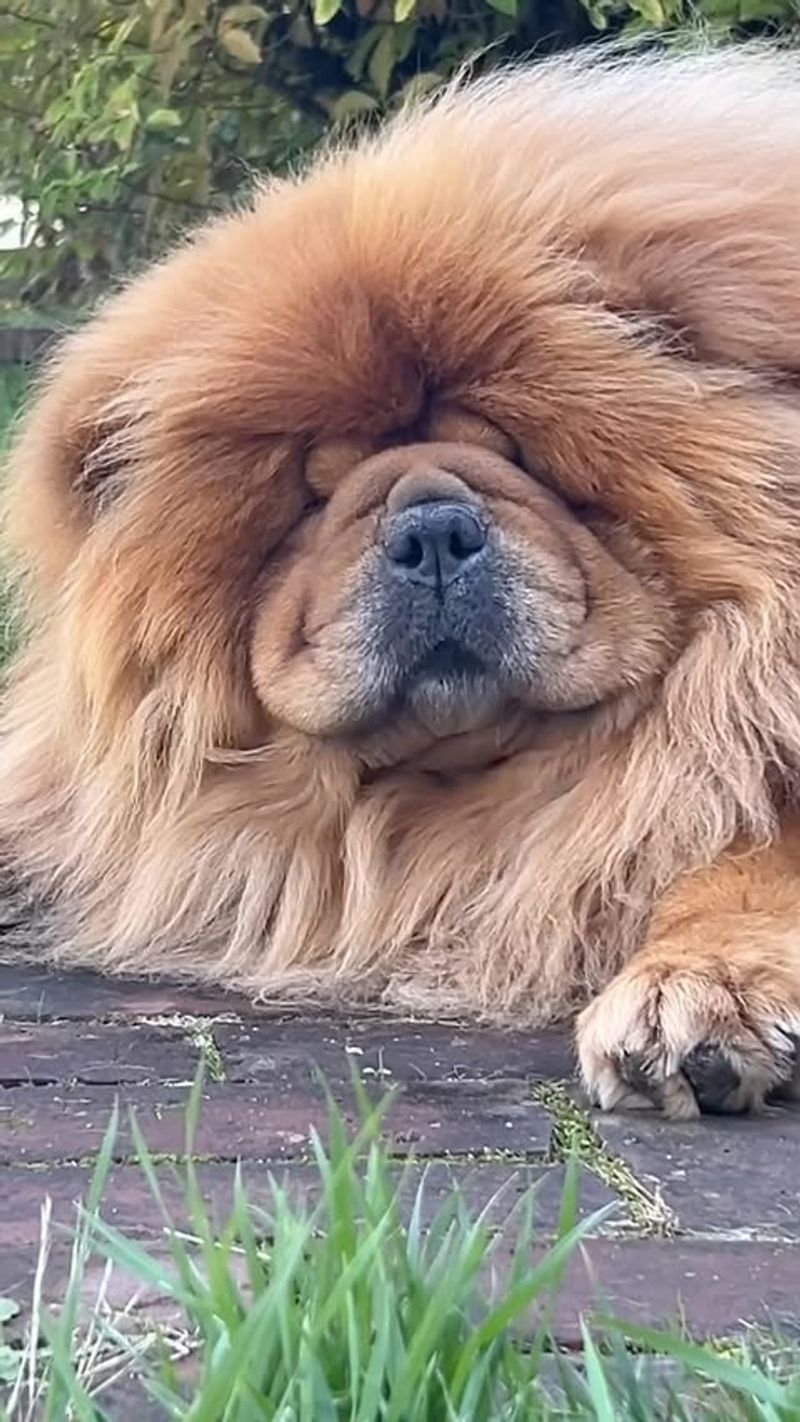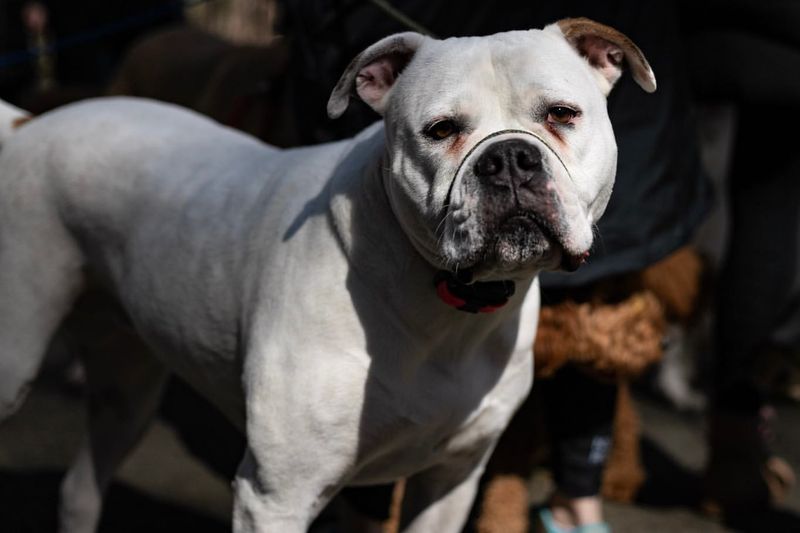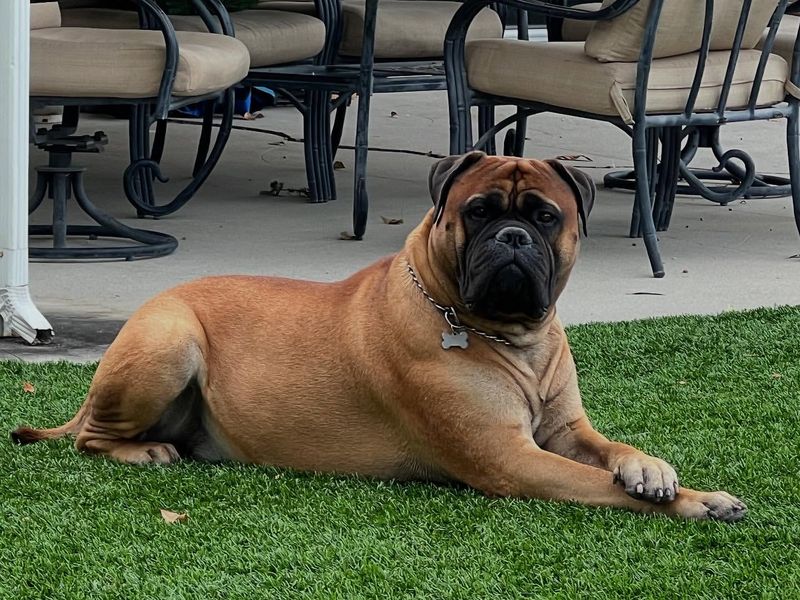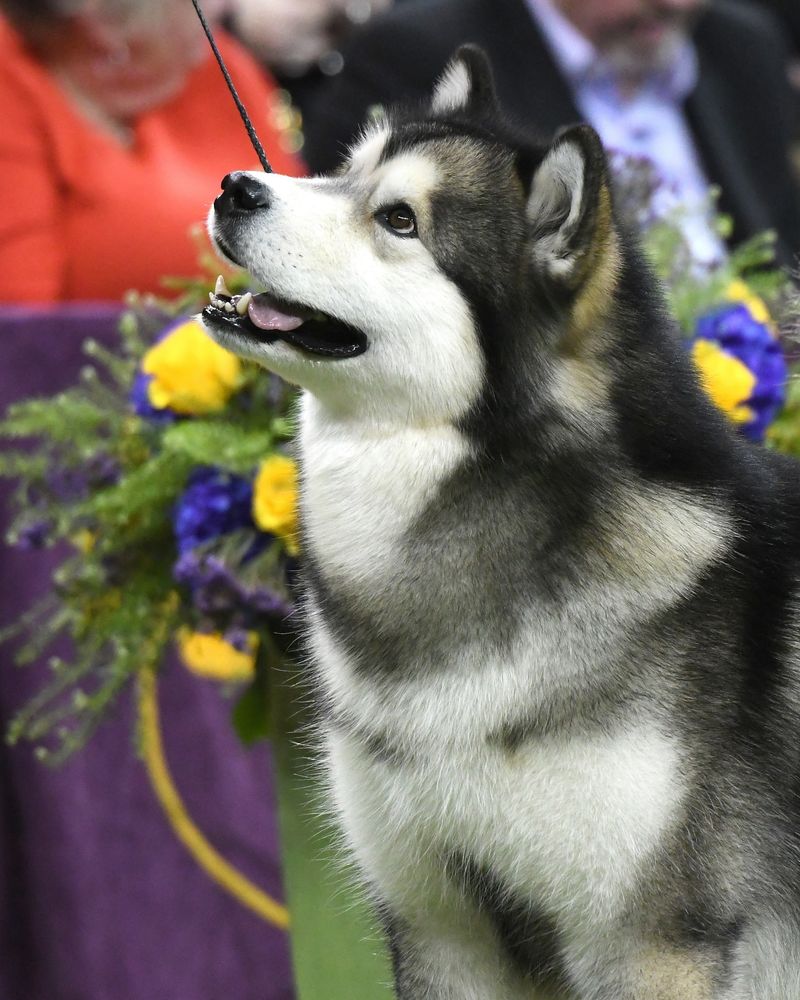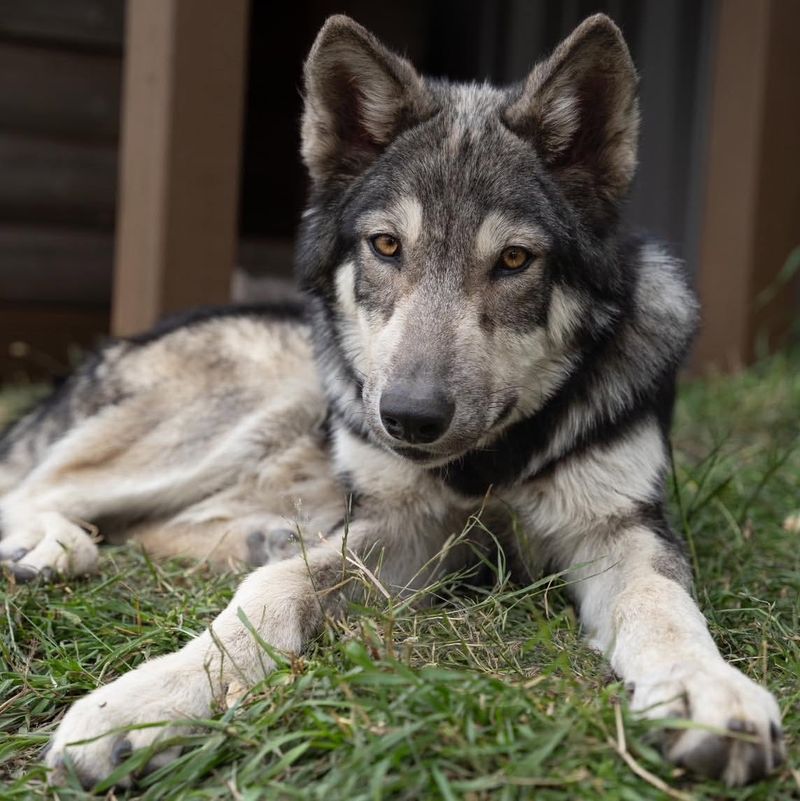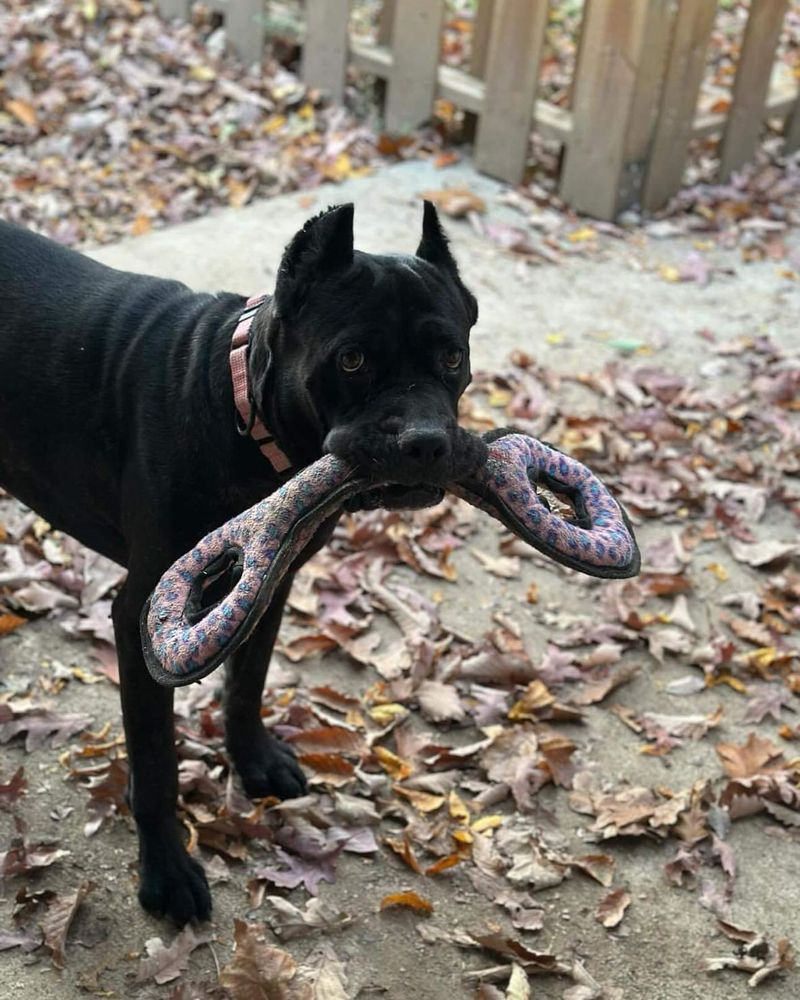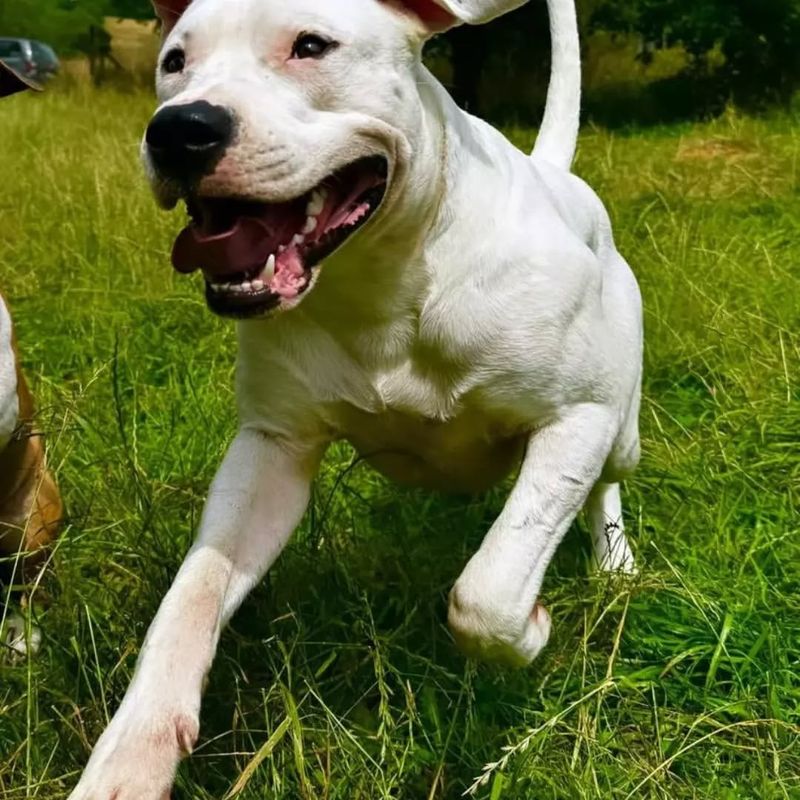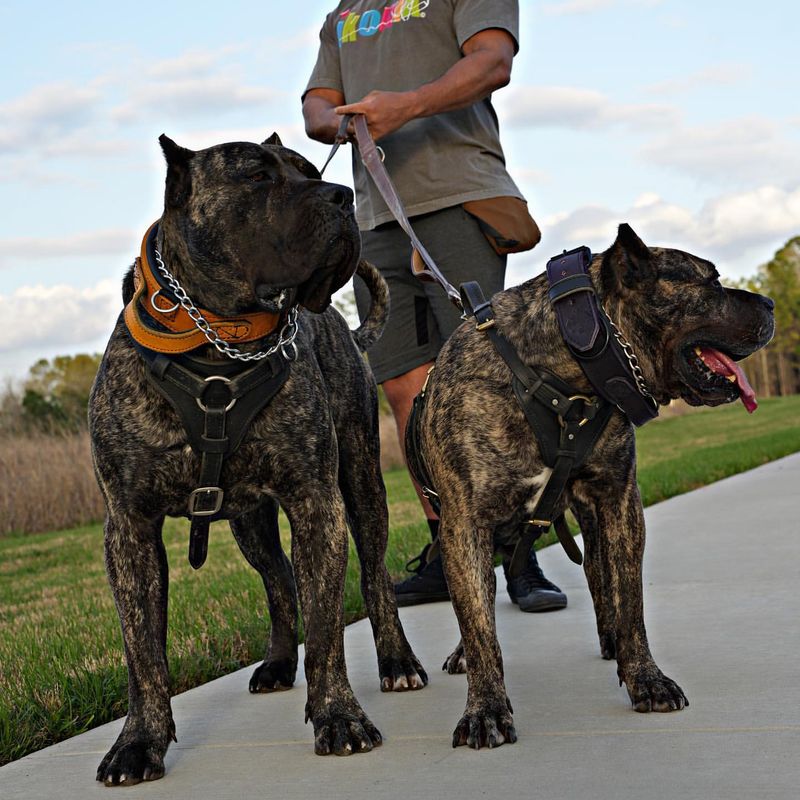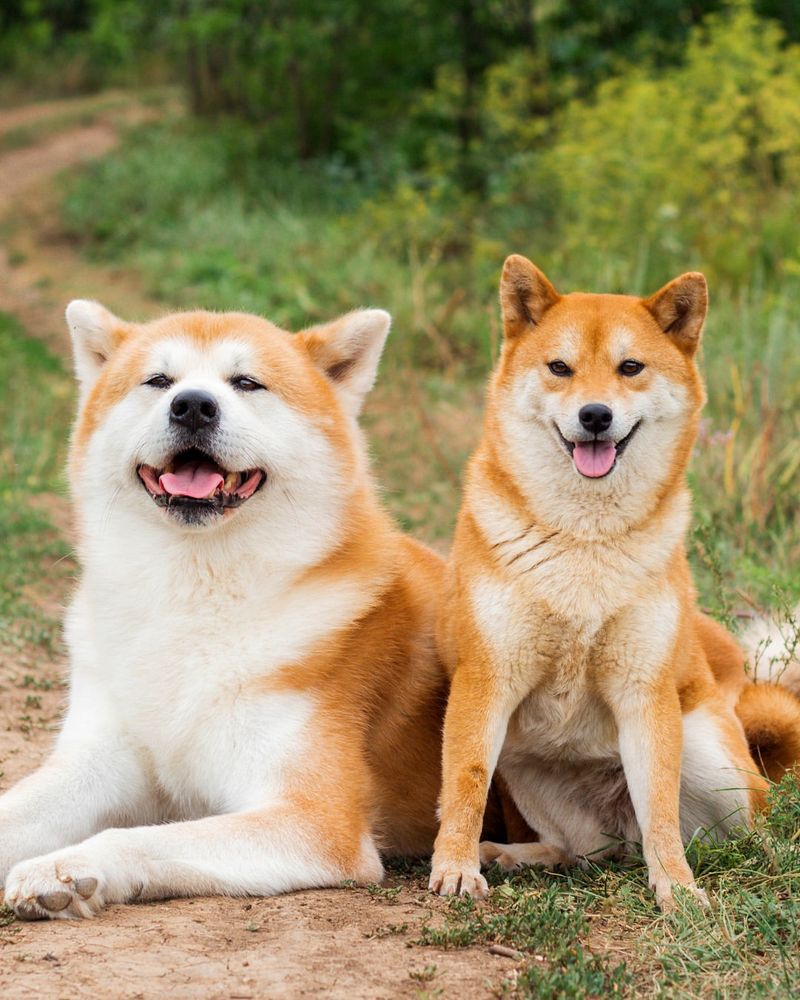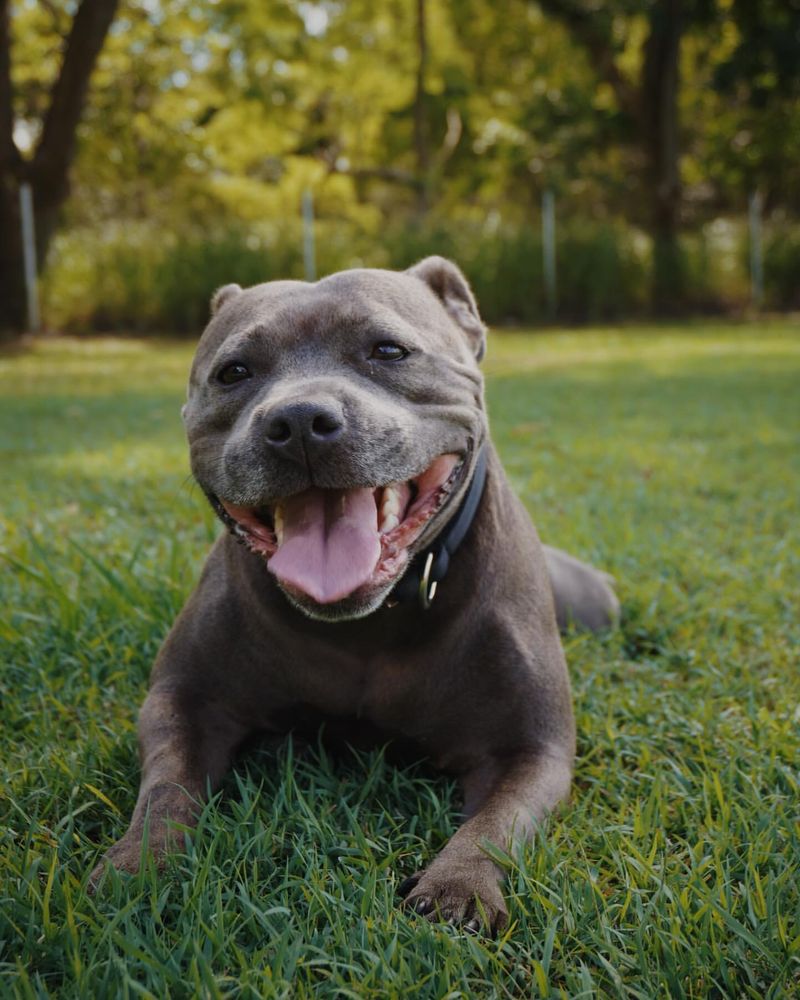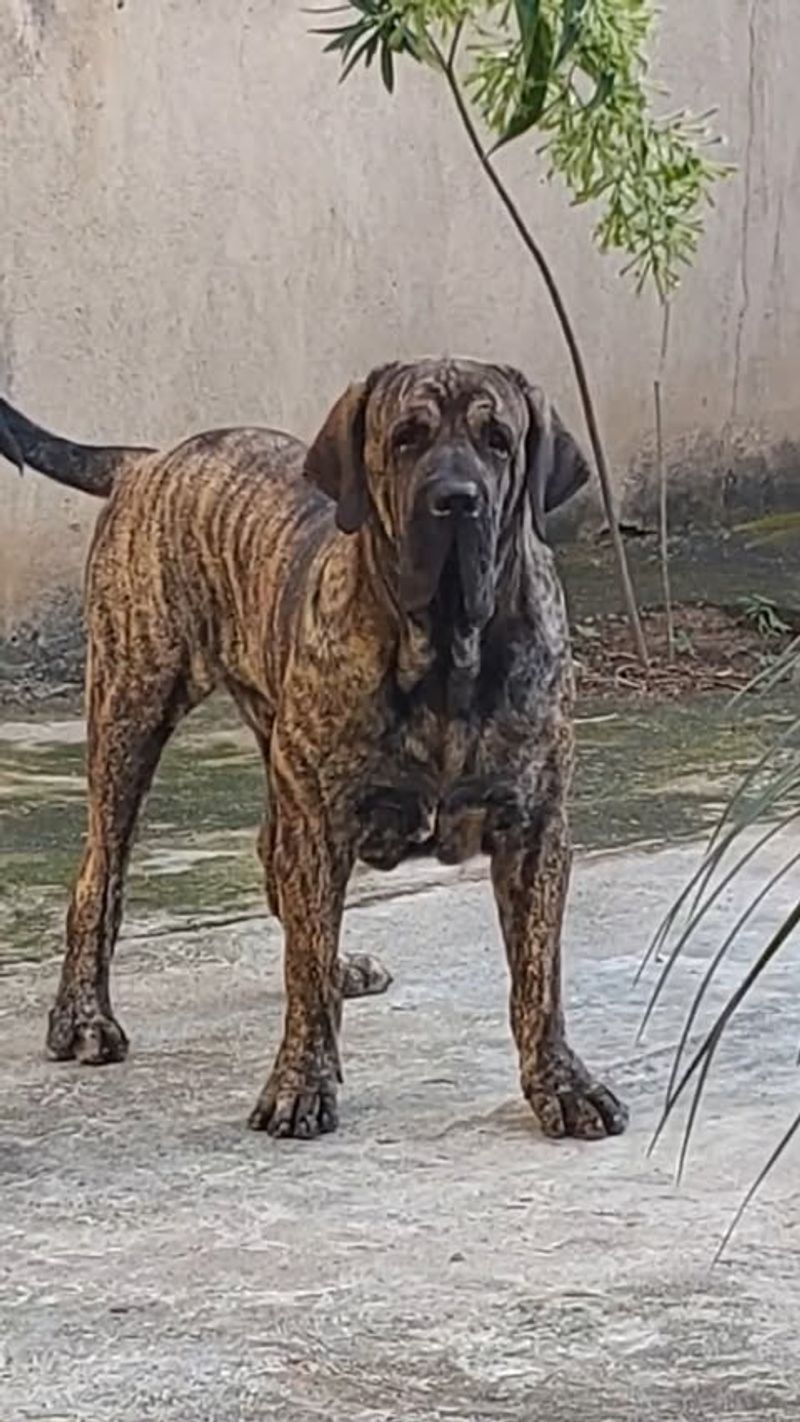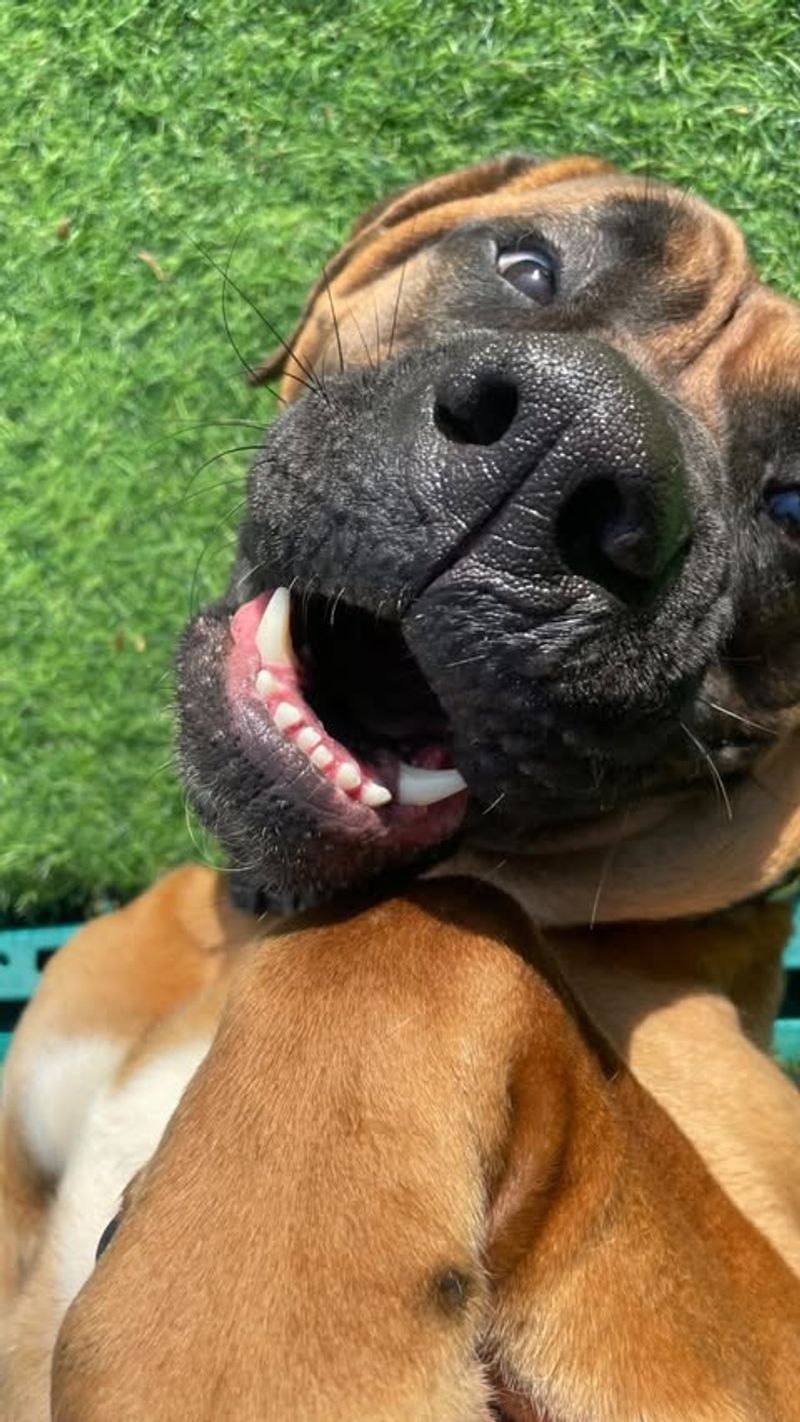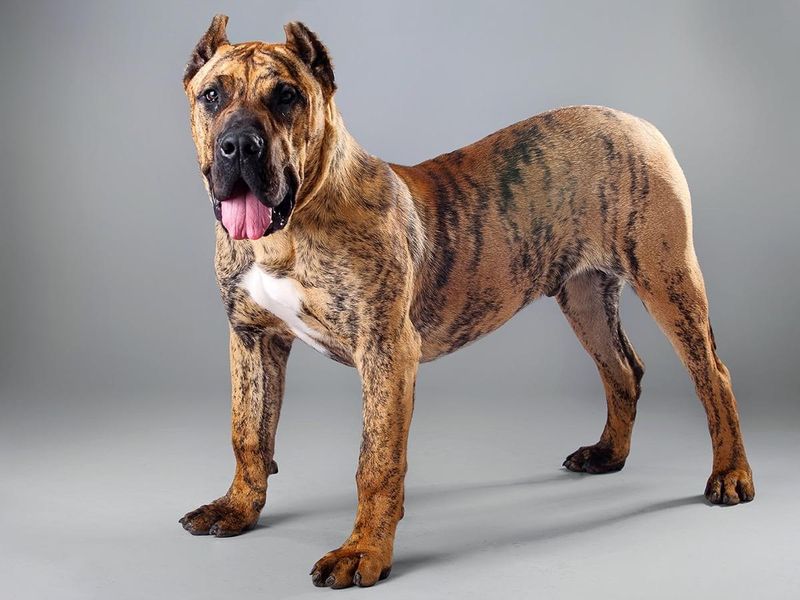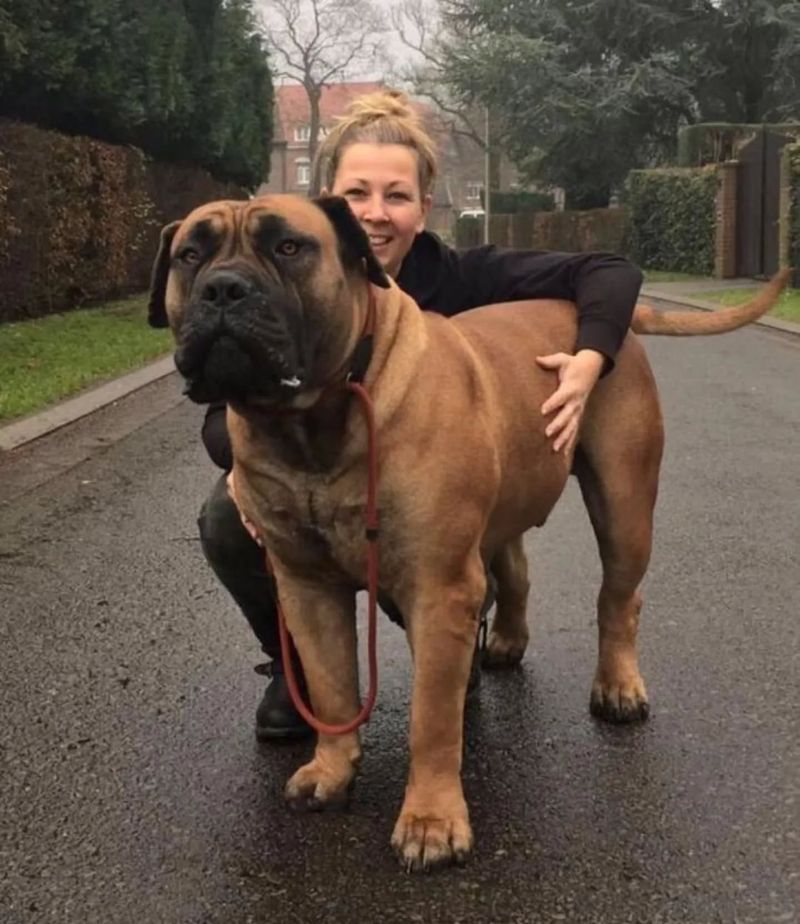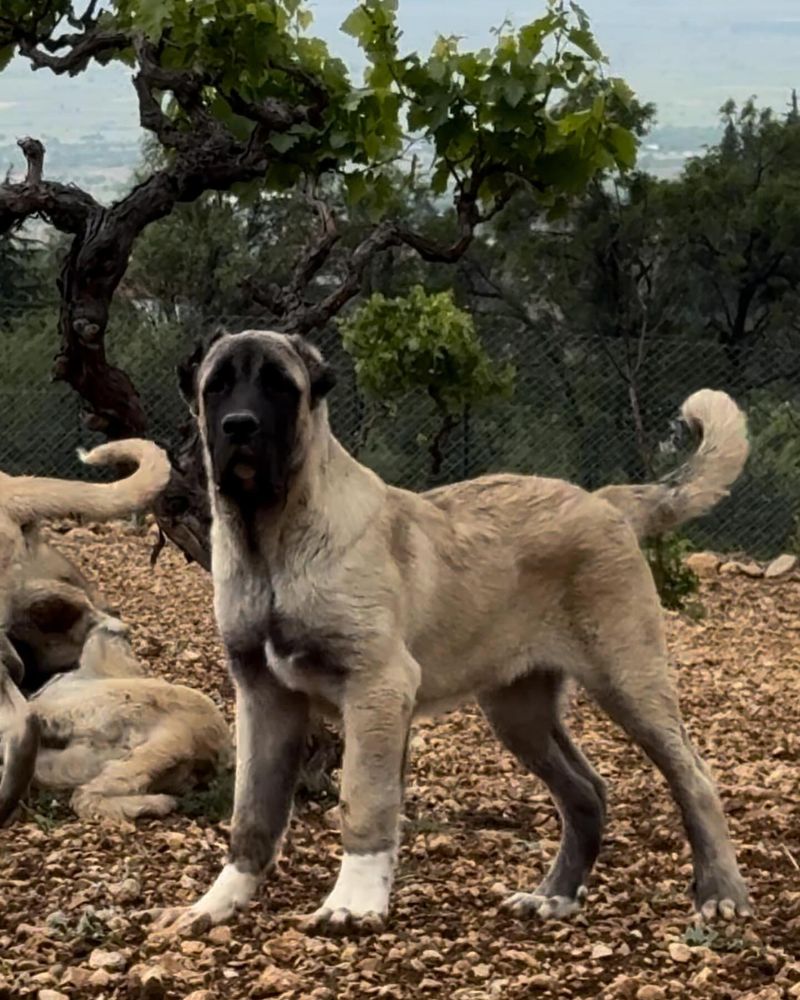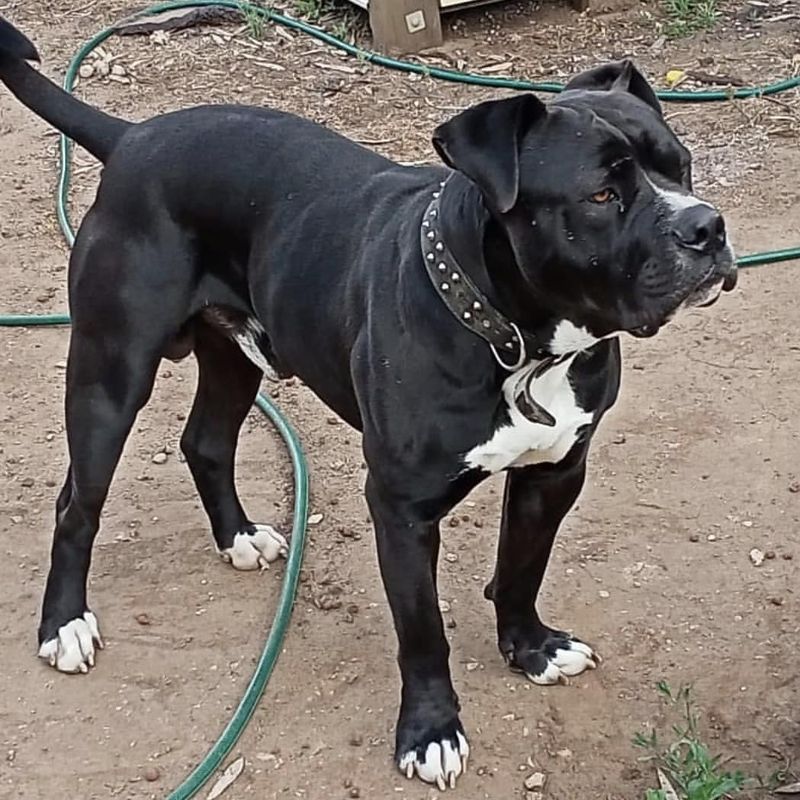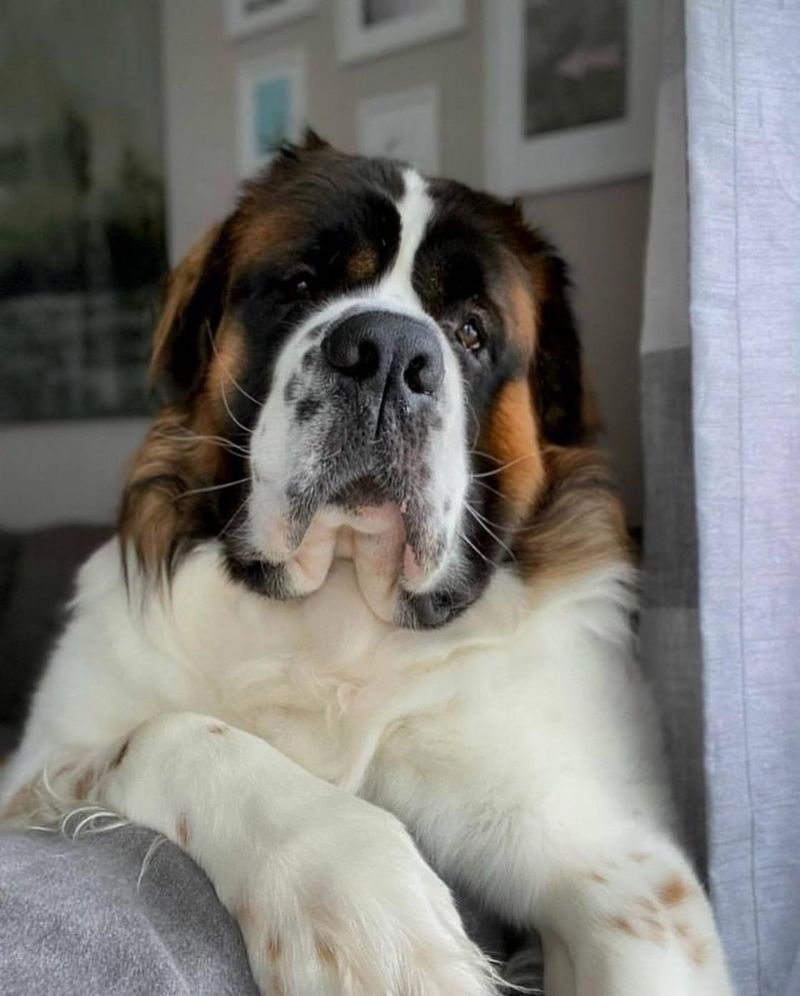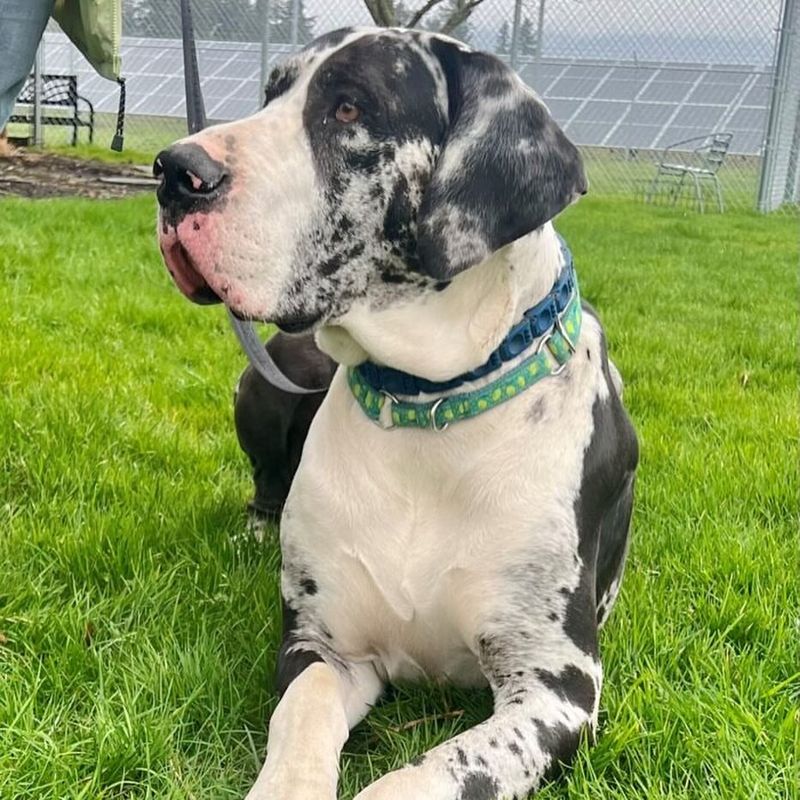Many dog breeds have found themselves on banned lists across various regions due to concerns about aggression and safety. This list provides an overview of 22 such breeds, shedding light on the characteristics that often lead to their controversial status.
Pit Bull Terrier
The American Pit Bull Terrier often finds itself on banned lists due to perceived aggression. Known for their strength, these dogs have a muscular build and a confident presence. Yet, with proper training, they can be gentle companions.
Pit Bulls are often misunderstood, and their behavior largely depends on their upbringing. Socialization plays a critical role in their development. In regions where they are banned, concerns revolve around their potential for aggressive behavior.
Owners are encouraged to provide extensive training and positive reinforcement to help them adapt to family life safely and happily.
Rottweiler
Rottweilers are large, powerful dogs with a reputation for being protective. Often used as guard dogs, they are both loyal and intelligent. Their size and strength can be intimidating, which sometimes leads to bans.
Despite their reputation, Rottweilers can be affectionate family pets when properly trained. Their protective instinct requires guidance from owners to ensure they behave appropriately in social settings.
Training and early socialization are key for Rottweilers to thrive in family environments, making them less likely to appear on banned lists.
German Shepherd
German Shepherds are renowned for their intelligence and loyalty. Often employed in police and military roles, their protective nature can be misinterpreted as aggression.
While they are not banned everywhere, their presence on some lists is due to their strong protective instincts. Proper training is essential to harness their energy positively.
These dogs thrive on activity and engagement and require an experienced owner to channel their natural instincts into productive behavior, ensuring a harmonious relationship with their community.
Doberman Pinscher
Doberman Pinschers are known for their sleek appearance and keen intelligence. Often used in security roles, their alert nature makes them excellent watchdogs.
Their reputation for aggression in certain situations leads to their appearance on some banned lists. However, with proper socialization and training, they are loyal and loving pets.
Dobermans require an environment where their energy can be utilized constructively, which can mitigate the risk of aggressive behavior and help them integrate into family life successfully.
Chow Chow
Chow Chows have a distinctive appearance with their fluffy coats and blue-black tongues. Their origins as guard dogs in China contribute to their reserved nature.
They can be aloof with strangers, which occasionally causes concern in communities, leading to bans. Their independent streak requires a patient and understanding owner.
Proper socialization from a young age can help Chow Chows become well-mannered pets. They thrive in calm environments where they receive consistent training and affection.
American Bulldog
The American Bulldog is a strong and athletic breed known for its protective instincts. These dogs are often perceived as aggressive due to their powerful build.
Their loyalty and love for family are unmatched, yet their protective nature can be misinterpreted. Bans often arise from concerns about their potential for aggression.
With consistent training and socialization, American Bulldogs can be gentle giants, making them beloved pets in homes where they understand boundaries and expectations.
Bullmastiff
Bullmastiffs are large, imposing dogs often used as security dogs due to their protective nature. Their size and strength can be daunting to those unfamiliar with the breed.
Despite their appearance, Bullmastiffs are gentle with families and do well with proper training. Their inclusion on banned lists often relates to their potential aggression.
Owners should focus on socialization and training to ensure these dogs are well-behaved and adaptable, allowing them to live peacefully within communities.
Alaskan Malamute
Alaskan Malamutes are strong, energetic dogs bred for sledding. Their independent nature requires firm guidance from owners to ensure obedience.
These dogs find themselves on banned lists due to their high energy and pack instincts, which can lead to challenging behavior.
Malamutes thrive in environments where they have space to exercise and mental stimulation. Consistent training helps them focus their energy positively, transforming them into affectionate and well-adjusted companions.
Wolf Hybrid
Wolf Hybrids are mixed breeds with wolf ancestry. Their wild lineage often leads to their presence on banned lists due to unpredictable behavior.
While they possess the loyalty of domestic dogs, their instincts can be challenging to manage in a home setting. This makes them unsuitable for inexperienced owners.
Proper containment, training, and understanding of their unique needs are essential for Wolf Hybrids to thrive. They require an environment that respects their wild nature while ensuring safety for all involved.
Cane Corso
The Cane Corso is a powerful Italian breed known for its protective nature. Their size and strength can be intimidating, often leading to bans.
Corsos are loyal and intelligent, requiring experienced handling to ensure their behavior remains controllable. With proper training, they can be affectionate family members.
Socialization from a young age helps them distinguish between friend and foe, reducing the risk of aggressive tendencies and fostering a safe family environment.
Dogo Argentino
Dogo Argentinos are powerful hunting dogs, often banned due to their potential for aggression. Their strength and tenacity make them formidable animals.
With proper training, these dogs can be loyal and gentle companions. Their protective instincts require guidance to ensure they interact appropriately with humans and other pets.
Consistent training and socialization are crucial, enabling them to become well-adjusted family members who are less likely to display aggressive behavior.
Presa Canario
The Presa Canario is a large working dog from the Canary Islands, often used for guarding. Their strength and assertive nature lead to their appearance on banned lists.
Despite their reputation, they can be gentle and loving with families when properly socialized. Owners must be knowledgeable and committed to training.
Providing structure and boundaries helps Presa Canarios integrate well into homes, reducing the likelihood of aggression and ensuring they are safe around others.
Akita Inu
Akita Inus are known for their loyalty and dominance. Originating from Japan, they are often reserved with strangers, which can lead to misunderstandings.
Their presence on banned lists is due to their strong-willed nature, which can turn aggressive if not managed properly. Training is essential for these dogs.
With the right environment and guidance, Akita Inus can be devoted family members, showcasing their loyalty and affection to those they love.
Staffordshire Bull Terrier
Staffordshire Bull Terriers are strong, energetic dogs known for their love of play. Their muscular appearance often leads to misconceptions about their nature.
While they are on some banned lists, Staffies are affectionate and gentle with proper socialization and training.
Owners should focus on positive reinforcement to harness their playful spirit, guiding them to be friendly and well-behaved companions in family environments.
Fila Brasileiro
The Fila Brasileiro is a large, powerful breed from Brazil, known for its loyalty and protective instincts. Often used as guard dogs, they can be wary of strangers.
Their inclusion on banned lists is due to their potential for aggressive behavior if not properly managed. Training and socialization are essential from an early age.
With the right approach, Filas can be devoted family pets, showcasing their natural guarding ability in a safe and controlled manner.
Tosa Inu
Tosa Inus are large, dignified dogs originally bred for fighting in Japan. Their strength and bravery make them formidable companions.
Banned in some areas due to historical associations with aggression, Tosas require experienced handling and a firm but loving environment.
Socialization is crucial to ensure they understand boundaries and become reliable family members, reflecting their true, gentle nature when properly trained.
Perro de Presa Mallorquin
The Perro de Presa Mallorquin is a strong, agile breed from Spain, known for its guarding abilities. Their assertive nature can lead to bans in certain areas.
Despite their reputation, they can be affectionate and loyal with families when properly trained and socialized.
Owners should provide consistent training and clear boundaries, helping these dogs integrate well into homes and become safe, dependable companions.
Boerboel
Boerboels are large, powerful dogs known for their protective instincts. Originally bred in South Africa, they make excellent guard dogs.
Their appearance on banned lists often stems from their size and strength, which can be intimidating without proper training.
With experienced handling and early socialization, Boerboels can be gentle and loving family members, providing security and companionship without aggression.
Kangal
Kangals are Turkish guard dogs known for their strength and protective instincts. Their presence on banned lists is due to their size and potential for aggression.
These dogs require a firm, experienced owner who can provide the training necessary to manage their instincts.
With proper socialization, Kangals can be gentle and loyal family members, ensuring they are both protective and safe around those they love.
Bandog
Bandogs are a mix of various breeds, often selected for strength and guarding abilities. Their unpredictable ancestry can lead to bans in some areas.
Despite their intimidating appearance, Bandogs can be loving and faithful pets with the right training and social environment.
Proper management and training are essential to ensure they are safe companions, helping them blend seamlessly into family life while maintaining their protective instincts.
Saint Bernard
Saint Bernards are gentle giants known for their rescue work in the Swiss Alps. Although known for their friendliness, their size can be a concern.
In some regions, their potential for accidental harm due to their size leads to bans. Training them to be mindful of their strength is important.
With a loving environment and consistent guidance, Saint Bernards can be affectionate family members, known for their gentle demeanor and loyalty.
Great Dane
Great Danes are gentle giants, often known for their towering height. Their size can sometimes lead to bans due to concerns about handling.
Despite their imposing stature, they are usually affectionate and friendly with families. Training them to respond well to commands is crucial.
With proper training and a nurturing environment, Great Danes can be wonderful companions, providing affection and loyalty without intimidation.
